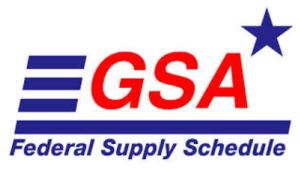You went into business to make money. Sure, you may have a passion for what you do, a drive to make a difference in the world and any number of other motivations for what you do, but without profits, you can’t stay in business long. A GSA contract is, for many businesses, an important source for obtaining profits – if they are created smartly. Many GSA contracts lack the key elements that increase profit potential and therefore end up not living up to expectation. If you have a GSA contract or are thinking about pursing one, take time to consider the parts and pieces that successful contract contain.

1. Robust List of Special Item Numbers (SINs). Recently, Special Item Numbers, more commonly referred to as SINs have undergone a make over in an attempt to look like NAICS codes. Like NAICS codes, SINs represent a specific service or product family. The way that a GSA contract holder sees contract opportunities is directly linked to the SINs listed. For example, let’s say that the Department of Labor wants to get quotes on purchasing 100 new computers. The GSA contract holders that have the Computer hardware SIN listed in their offering will receive notification of this opportunity and have the chance to bid on it. Contract holders that could execute on this order but don’t have the SIN on contract will never know about this opportunity. The more applicable SINs that a GSA contractor lists, the more opportunities they have access to… this equals more profit potential. (Each SIN listed must be substantiated as a valid service/product through via the GSA review process)
2. Most Favored Customer. A GSA contract is an offering of products and services for sale to government agencies at pre-negotiated rates. The starting point for these negotiated rates is the prices being paid by your “Most Favored Customer”. Who is your Most Favored Customer? At first glance, the clause regulating this element, states that a contract holder must offer pricing better than their lowest paying customer, aka Most Favored Customer. It’s easy for a business to take this statement at face value and use the pricing that their largest, lowest paying customer has, but this may not be correct. The Most Favored Customer that is presented to the GSA and the basis of your negotiated prices should reflect a customer that is most similar to the GSA. This customer may not have the lowest prices that you offer. By paying special attention to this contract element, you can significantly effect your offered pricing/profits. Remember, you can always charge a government buyer less than what’s offered on your GSA contract, but never more. Make sure your pricing gives you both profits and room for sales or further negotiations. (Government Contract Services, Inc. completes special Most Favored Customer reviews with EVERY new/Streamlined contract we assist with.)
3. Terms and Conditions. Every long-term contract needs to have a solid foundation. While you may not be able to set terms and conditions exactly as you would for a commercial buyer, you do have some say so. Do you typically give early payment discounts? If not, do you really want to start? Do you have the software or manpower to execute on special shipping terms you promise in your GSA contract? Will the terms and conditions within your GSA contract require you to spend more in order to meet them? Drafting your Terms and Conditions should reflect practices as close to those your business already has in place in order to help profitability instead of detract from it.
4. Negotiated Prices. This is not the same element as the Most Favored Customer. Identifying your Most Favored Customer sets your pricing baseline. The GSA then has the job of “negotiating” you to the largest discount off of this baseline as they can. Some Contracting Officers can be particularly aggressive during this negotiation. When you come armed to the table with competitive and market research to substantiate the discounts you are comfortable offering, negotiations may go a bit moe in your favor. Further arming yourself with a negotiation-experienced consultant, who has seen most of the tactics used by Contracting Officers and knows how to out maneuver them… directly results in higher profit potential.
Remember, a GSA contract can be a 20 year tool for your business. Setting it up from the beginning to be profitable and useable increases its’ effectiveness and ability to deliver the profits you entered into this contract to get.
For GSA questions, call us at (234) 212-3400. Already have a contract and want to discuss what changes might make it more profitable, call us at (234) 212-3400.




